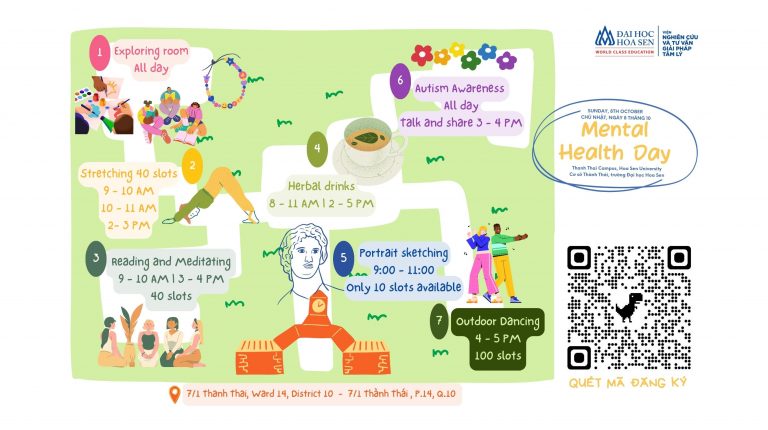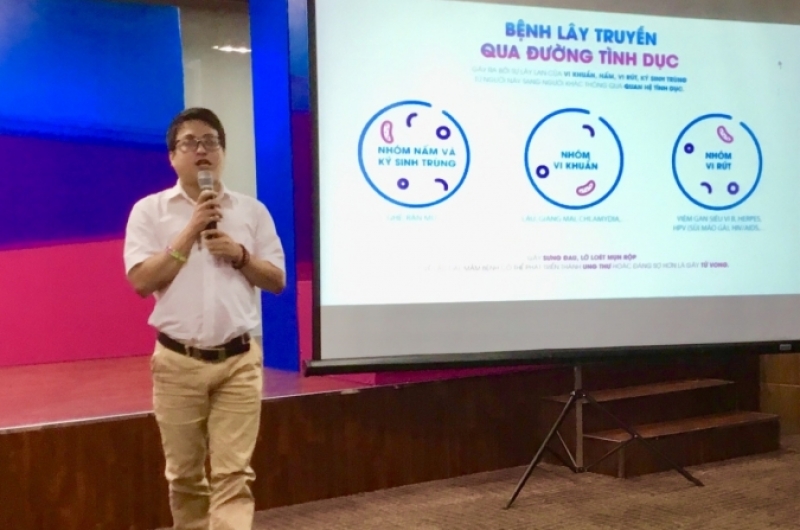Why women need male allies in the workplace – and why fighting sexism every day increases the value of men
March15, 2022
Author: Meg Warren -Associate Professor of Management, Western Washington University
Translator: Phan Thi Dong Hoai – Teacher -Lecturer- Hoa Sen University (HSU)

Women and gender equality groups are trying to persuade men to become allies in the fight against sexism.
Research has shown that without support from men, women will have to face the burden of fighting gender discrimination in the workplace that occurs every day, such as humorous behavior from people who don’t like them. women as well as hidden attacks against them. This can lead to women feeling isolated, stressed, and exhausted.
So gender is not discriminated against gender – can men make a difference?
My colleagues and I have a hunch that only small, isolated actions by male allies – even simple actions like highlighting the strengths of female colleagues or checking in on them is it okay – are also seen as a counterweight to the negativity of everyday sexism. Furthermore, we decided to research how these acts of support impact men in the workplace.
What It’s Like to Behave Like an Ally
My colleagues and I tested these hunches with a new study published in the journal Psychology of Men and Masculinities.
In this study, we recruited 101 pairs of male and female colleagues working in male-dominated departments at 64 research universities in the United States and Canada. We asked department heads to invite female lecturers to conduct the survey and then invite male colleagues who regularly work with them to participate in the survey.
We asked these women “To what extent did their chosen male colleague behave as an ally, such as taking an interest in issues faced by their female colleagues and advocating for them? when he sees them being discriminated against. We also asked women, for example, what behaviors they wanted their male colleagues to appreciate as a sign of inclusion – and whether they felt enthusiastic about working with them or not.”
We also asked the men “To what extent do they demonstrate that they conduct themselves as an ally, such as understanding the unique experiences of female colleagues or daring to confront colleagues who have sexist behavior towards women?
We also wanted to know to what extent they felt they had support for women to help them “do better” in life and gain new skills to become “successful” better members of the family”. All of these responses were rated on a scale.
The Greater the Integration of Women, the Greater the Development of Men in the Workplace
According to research results, less than half of women rate male colleagues as strong allies. We found that women who saw male colleagues as allies experienced higher levels of integration into their work environments than those who did not see men as allies, which is why women feel more enthusiastic when working with them.
In other words, having men as allies in the workplace helps women feel a greater sense of belonging in the workplace and this helps women work more enthusiastically with their male colleagues at work.
This method has important and long-term implications. If women feel energized and included, they may stay with their jobs and employers longer – instead of quitting – and work to change sexism in the workplace.
Men who tend to act as allies for women also show higher levels of personal development and also show they have acquired the skills to be good husbands, fathers, brothers, and sons. than. This trend shows that being a male ally creates positive effects beyond the work environment.
AN IMPORTANT FIRST STEP
Although these are hopeful results, our study has some caveats.
One of our studies found that men and women often have different perceptions of who is an ally. For example, 37% of women whose male colleagues view them as strong allies disagree with this assessment. And more than half the percentage of men who are considered strong allies by women do not identify as such.
However, men benefit from seeing themselves as allies whether their female colleagues agree or not. And importantly, do women benefit from perceiving their male colleagues as allies, even if they do not subsequently see them this way?
Our findings are also limited by the small sample size. And we don’t know what men who claim to be allies have done to help women. But this may go some way to explaining the problem.
Ultimately, just men showing signs of wanting to be good allies is an important first step toward a change in the way many men have treated the women in their lives. We believe it also leads to greater equality in the workplace.
When women see men as allies, it makes them feel more included and belong in the workplace. This represents a good starting point for men who want to be allies, and they should find more ways to support women in the workplace.
The Conversation newspaper and author Meg Warren allowed Gendertalkviet to translate into Vietnamese and post the full text. On behalf of the Gender Talk Editorial Board, we would like to send our sincere thanks to the Author and The Conversation Newspaper for allowing us to republish the full text. The contributions of The Conversation Newspaper and the author are very valuable and meaningful.
Link: https://gendertalkviet.blogspot.com/2022/02/tai-sao-nu-gioi-lai-can-ong-minh-nam.html
Original link: https://theconversation.com/why-women-need-male-allies-in-the-workplace-and-why-fighting-everyday-sexism-enriches-men-too-164384
















